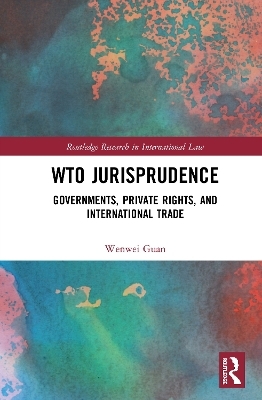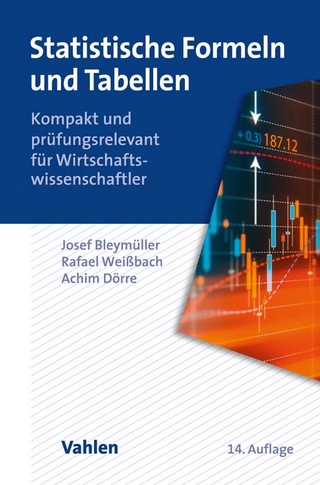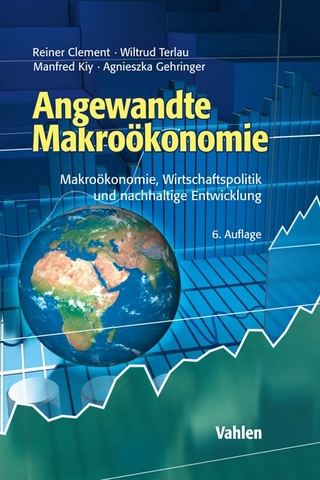
WTO Jurisprudence
Governments, Private Rights, and International Trade
Seiten
2020
Routledge (Verlag)
978-0-367-42876-1 (ISBN)
Routledge (Verlag)
978-0-367-42876-1 (ISBN)
This book offers a critical examination of the tripartite dynamics between governments, private rights and the World Trade Organization (WTO) as the world’s trading mechanism.
This book offers a critical examination of the jurisprudence of the World Trade Organization (WTO) as an emancipatory international social contract on trade.
The book suggests that the WTO is an international organization built and operating on member states’ attribution of authority through consent with legislative, administrative, and adjudicative functions – three functions in one triune personality. With a solid constitutional continuity building on GATT experiences, the WTO has successfully made governments accountable to foreign individuals in various capacities either as traders of goods, providers of services, or holders of intellectual property rights within the global marketplace. With a triune personality, the WTO operates within the reign of state primacy – the force – ultimately for the benefits of individuals – the ends – in the global marketplace, and gains a soul of its own in the institutional evolution – the means – of the global trading regime. Although the tripartite dynamics between states, international institutions, and individuals in the global marketplace are unprecedentedly complex, the WTO’s ends of benefiting individuals in the global marketplace has no end. Beyond the critical analysis of WTO’s decision-making by consensus, the book critically examines GATT’s "common intention" treaty interpretation, Antidumping’s NME methodology, TRIPS’ public health concerns, and IP-competition trade policy dynamics. A unified WTO jurisprudence looking at the WTO as an international social contract on trade is therefore proposed to allow a fresh look at the force, the means, and the ends of the constitutional evolution of the global trading regime.
This book offers a critical examination of the jurisprudence of the World Trade Organization (WTO) as an emancipatory international social contract on trade.
The book suggests that the WTO is an international organization built and operating on member states’ attribution of authority through consent with legislative, administrative, and adjudicative functions – three functions in one triune personality. With a solid constitutional continuity building on GATT experiences, the WTO has successfully made governments accountable to foreign individuals in various capacities either as traders of goods, providers of services, or holders of intellectual property rights within the global marketplace. With a triune personality, the WTO operates within the reign of state primacy – the force – ultimately for the benefits of individuals – the ends – in the global marketplace, and gains a soul of its own in the institutional evolution – the means – of the global trading regime. Although the tripartite dynamics between states, international institutions, and individuals in the global marketplace are unprecedentedly complex, the WTO’s ends of benefiting individuals in the global marketplace has no end. Beyond the critical analysis of WTO’s decision-making by consensus, the book critically examines GATT’s "common intention" treaty interpretation, Antidumping’s NME methodology, TRIPS’ public health concerns, and IP-competition trade policy dynamics. A unified WTO jurisprudence looking at the WTO as an international social contract on trade is therefore proposed to allow a fresh look at the force, the means, and the ends of the constitutional evolution of the global trading regime.
Wenwei Guan is an Associate Professor of Law at City University of Hong Kong.
1. International Social Contract on Trade: Its Force, Means and Ends 2. WTO Decision-making by Consensus 3. GATT: The "Common Intention" Approach of Treaty Interpretation 4. Antidumping: The NME Normal Value Determination 5. TRIPS: IPRs, Public Health, and International Trade 6. Trade and Policy: IP-competition Dynamics in TRIPS’ FRAND Enforcement 7. Ends without End: The Future Prospects of WTO Evolution
| Erscheinungsdatum | 22.07.2020 |
|---|---|
| Reihe/Serie | Routledge Research in International Law |
| Verlagsort | London |
| Sprache | englisch |
| Maße | 156 x 234 mm |
| Gewicht | 453 g |
| Themenwelt | Recht / Steuern ► Allgemeines / Lexika |
| Recht / Steuern ► EU / Internationales Recht | |
| Wirtschaft ► Volkswirtschaftslehre ► Makroökonomie | |
| ISBN-10 | 0-367-42876-8 / 0367428768 |
| ISBN-13 | 978-0-367-42876-1 / 9780367428761 |
| Zustand | Neuware |
| Haben Sie eine Frage zum Produkt? |
Mehr entdecken
aus dem Bereich
aus dem Bereich
Volkswirtschaftslehre für eine sich ändernde Welt
Buch | Hardcover (2024)
De Gruyter Oldenbourg (Verlag)
44,95 €
Kompakt und prüfungsrelevant für Wirtschaftswissenschaftler
Buch | Softcover (2021)
Vahlen, Franz (Verlag)
11,90 €
Makroökonomie, Wirtschaftspolitik und nachhaltige Entwicklung
Buch | Hardcover (2022)
Vahlen (Verlag)
49,80 €


